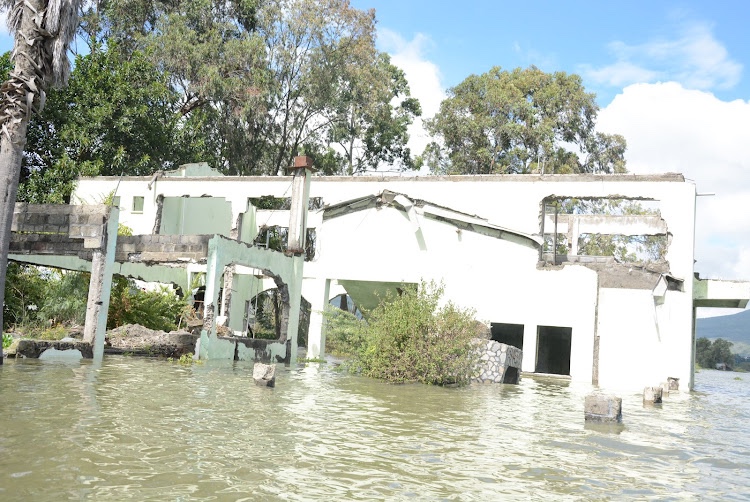The Water Resources Authority has declared illegal any title deeds for riparian land around Lake Naivasha.
That means flower and vegetable farms covering many acres, tens of hotels and other businesses.
Those who have invaded public land will be kicked out if they do not leave. The authority has issued a notice to encroachers, saying in coming weeks it will embarked on removal of illegal residents and structures.
David Mumo, who is in charge of the water authority in Rift Valley, said riparian land is public land which is out of bounds for any activity.
He said the authority had already marked beacons at 1,892.8m above sea level, which was the official gazetted boundary under the Protection Order of 2012.
“Any activity above this boundary is illegal and anyone who has a title deed on the land should discard it, as it is illegal,” he said.
Speaking in Naivasha during a stakeholder meeting on the lake’s status, Mumo expressed concerns over continued encroachment on riparian land.
He warned that water could one day reoccupy its space and pointed to the current rise of water levels in lakes in Rift Valley.
The senior WRA officer said 17 schools had been closed around Lake Baringo due to the dramatic water rise that also affected government offices.
“We are asking the county physical planners to work with our officers before allowing developers to work on riparian land,” he said.
Chairman of the Lake Naivasha Water Resource Users Association (Lanawrua) Enock Kiminta agreed riparian land around rivers was also under threat.
He said River Malewa, which is the main source of water for Lake Naivasha, was under threat from increased abstraction and human activities.
“We have seen tens of women washing clothes daily along River Malewa and this is making it hard for aquatic insects to float on the surface for air,” he said.
Kiminta said research has demonstrated that detergents bind up oxygen to form bubbles that could starve fish and other insects of oxygen.
“Informal settlements along the river are responsible for pollution and excessive abstraction of water and thus the need for concerted action,” he said.
Kenyan laws define riparian land as being a minimum of six metres, up to a maximum of 30 metres on either side of a river bank from the highest water mark.
Building on riparian land is illegal and buildings can be demolished.
The rising waters of is hanging the calculus of riparian lands.
There's no story that cannot be told. We cover the stories that others don't want to be told, we bring you all the news you need. If you have tips, exposes or any story you need to be told bluntly and all queries write to us [email protected] also find us on Telegram

